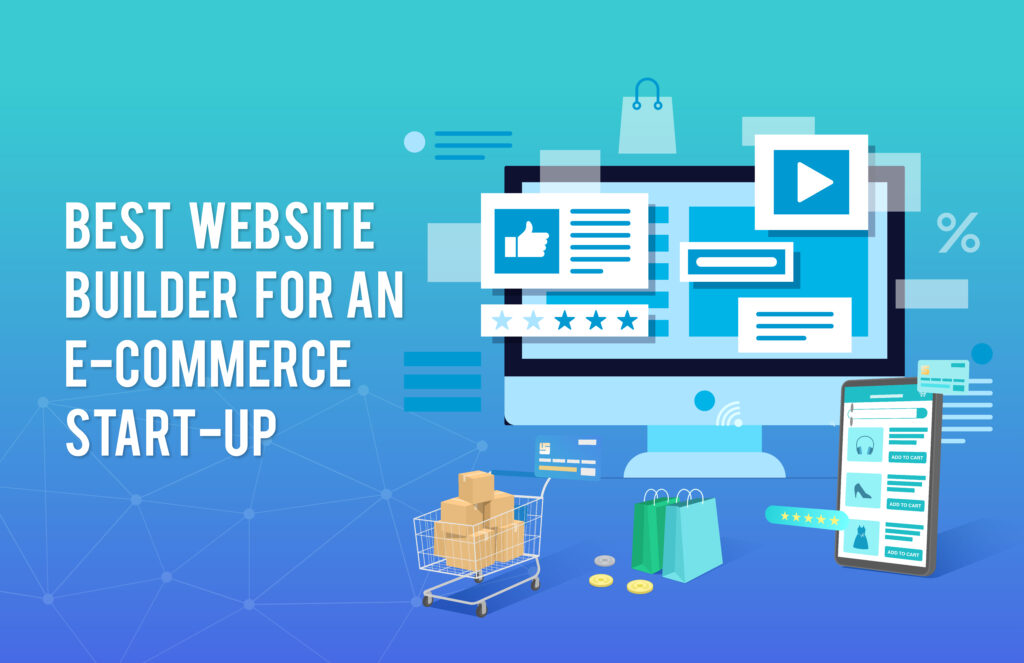In today’s digital era, launching an e-commerce startup has become remarkably accessible. Realizing your entrepreneurial vision is well within reach with the right tools and resources at your disposal.
One of the pivotal decisions that will shape your online store’s success is selecting the ideal website builder. It is a fundamental element that must align seamlessly with your requirements, budget constraints, and long-term aspirations. The right platform can be transformative, enhancing functionality, aesthetics, and overall achievement.
In this comprehensive guide, we will walk you through choosing the optimal website builder for your e-commerce venture, taking into account essential factors like ease of use, feature set, pricing models, scalability, and design possibilities.
Clarify Your Objectives and Financial Plan
Before delving into the world of website builders, it is imperative to gain a deep understanding of your business objectives. Take some time to answer these critical questions:
- What products or services will your e-commerce store offer?
- Who is your target demographic?
- What budget have you allocated for website development and ongoing maintenance?
- Do you possess design preferences or adhere to specific brand guidelines?
- Are you considering future expansion and scalability?
By clearly grasping your business requirements, you will be well-prepared to narrow down your options and make an informed choice.
Assess Your Technical Proficiency
Your level of technical expertise plays a pivotal role in selecting the right website builder. Various platforms cater to different skill levels, ranging from novice to expert. Here are a few considerations:
User-Friendly Builders: If you lack technical prowess, consider platforms like Wix, Shopify, or Squarespace. These user-friendly builders offer drag-and-drop interfaces and pre-designed templates, enabling you to create a professional-looking website without any coding knowledge.
Advanced Builders: For those with coding skills or a willingness to learn, platforms like WordPress with WooCommerce or Magento provide a higher degree of customization. While these options offer unparalleled flexibility, they may require a greater degree of technical expertise.
Budget and Financial Considerations
Assessing your budget is a pivotal step in choosing a website builder. Different platforms offer various pricing structures, and it’s essential to consider the following:
Initial Costs: Some website builders provide free plans or trial periods, while others necessitate an upfront payment. Determine what aligns with your initial budget for your ecommerce journey.
Monthly Fees: Many website builders operate on a subscription-based model. It’s crucial to compare these costs and understand the features included in each plan.
Transaction Fees: Certain platforms levy a percentage fee on each sale you make. If profit margins are tight, these fees can significantly impact your profitability.
Scalability: Contemplate how costs may evolve as your business grows. Some platforms may become more expensive as you expand your product offerings or add features.
Don't miss out on the opportunity to create a powerful online presence. Let's build your dream e-commerce website together.
Start Now!
E-commerce Features and Functionality
The effectiveness of your online store hinges on its functionality. Consider the following essential e-commerce features when evaluating a website builder:
Payment Processing: Ensure that the platform supports a variety of payment gateways, including credit cards, PayPal, and other popular methods.
Inventory Management: Efficient inventory tracking and management are indispensable to prevent overselling and maintain accurate stock levels.
Mobile Responsiveness: In an era of mobile shopping, it’s imperative that your website is mobile-friendly and offers a seamless experience on all devices.
SEO Tools: Seek out built-in SEO tools that can boost your website’s visibility in search engine results.
Security: E-commerce websites handle sensitive customer information. Opt for a builder with robust security features, including SSL certificates and secure payment processing.
Scalability: Your website should be flexible enough to grow alongside your business, allowing you to add more products and features as needed.
Templates and Design Options
The visual appeal of your website plays a pivotal role in attracting and retaining customers. Most website builders offer a diverse array of templates and design options. Notable platforms like Squarespace and Wix are renowned for their design flexibility. Consider the following factors:
Customization: Opt for a builder that empowers you to customize templates to align with your brand’s unique style and identity.
Responsive Design: Ensure that the templates are responsive and look appealing on all devices, including smartphones and tablets.
Industry-Specific Templates: Some website builders offer templates specifically tailored for various industries, such as fashion, electronics, or food.
Customer Support and Resources
Finally, the level of customer support and available resources from the website builder should not be underestimated. When issues arise or you require assistance, reliable support is indispensable. Look for the following:
Customer Support Channels: Check if the platform offers customer support through live chat, email, or phone.
Documentation and Tutorials: Explore the availability of user guides, tutorials, and a knowledge base to help you troubleshoot problems and master the platform effectively.
Community and Forums: Being part of an active user community or forum can be invaluable for receiving advice, sharing experiences, and finding solutions to common challenges.
Conclusion
Selecting the perfect website builder for your e-commerce startup is a pivotal decision that can profoundly influence your business’s success.
By clearly defining your objectives, budget, and priorities, and methodically evaluating factors like ease of use, feature set, pricing models, scalability, design options, SEO tools, and security, you can make a well-informed choice that aligns perfectly with your unique needs, setting you on a path towards e-commerce excellence.
Remember, your website is an investment in your business’s future, so invest the time to choose the right platform for your distinctive venture.

